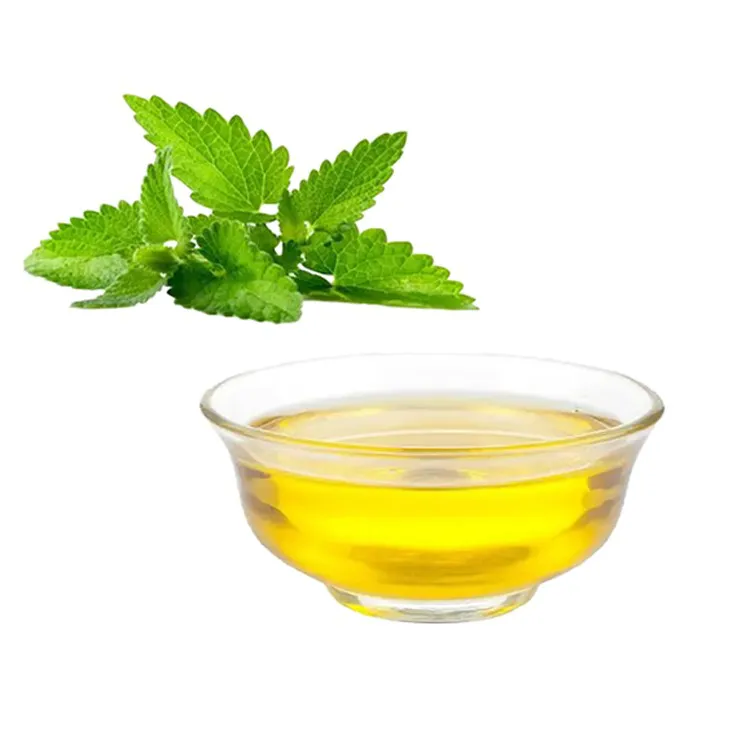- 0086-571-85302990
- sales@greenskybio.com
Peppermint oil: Is the extract effective for weight loss?
2024-11-12

Introduction
Peppermint Oil has been a subject of great interest in the realm of natural remedies. It is renowned for its refreshing aroma and various potential health benefits. In recent years, there has been speculation about whether Peppermint Oil extract could be an effective aid in weight loss. This has led many to explore the scientific basis behind such claims.

Peppermint Oil: An Overview
Peppermint oil is derived from the peppermint plant, Mentha × piperita. It contains a variety of compounds, with menthol being one of the most prominent. Menthol gives peppermint oil its characteristic cooling sensation and is responsible for many of its physiological effects.

Scientific Research on Peppermint Oil and Weight Loss
Animal Studies
Some animal studies have provided initial insights into the potential of peppermint oil for weight loss. In these studies, animals that were given peppermint oil extract showed certain changes in their body composition and metabolism. For example, in a study on rats, those that received peppermint oil supplementation had a reduction in body fat percentage over a period of time. However, it is important to note that animal studies cannot always be directly extrapolated to humans, as there are significant differences in physiology between species.
Human Studies
When it comes to human studies, the evidence is less conclusive. Some small - scale human trials have suggested that peppermint oil may have an impact on weight loss, but these results are often inconsistent. One study found that participants who took peppermint oil capsules reported a decrease in appetite. Another study looked at the effect of peppermint oil on digestion and found that it could potentially improve the efficiency of the digestive process, which might be related to weight management. However, larger and more comprehensive studies are needed to firmly establish any causal relationship between peppermint oil and weight loss in humans.

Possible Mechanisms for Weight Loss
Appetite Suppression
One of the proposed mechanisms by which peppermint oil may contribute to weight loss is through appetite suppression. The aroma of peppermint has been shown to have an effect on the brain's satiety centers. When people are exposed to the smell of peppermint, it can trigger signals that make them feel less hungry. This could potentially lead to a reduction in calorie intake. Additionally, some studies suggest that compounds in peppermint oil may interact with the hormones that regulate appetite, such as ghrelin and leptin, although the exact mechanisms are still not fully understood.
Impact on Digestion
Peppermint oil may also play a role in weight loss through its impact on digestion. It has been shown to relax the muscles of the gastrointestinal tract. This relaxation can help to relieve symptoms such as bloating and indigestion. By improving the overall function of the digestive system, peppermint oil may enhance the body's ability to absorb nutrients more efficiently and eliminate waste. A more efficient digestive process could potentially lead to better weight management, as it can prevent the build - up of undigested food and toxins in the body.

Proper Usage of Peppermint Oil for Weight Loss
If one decides to use peppermint oil in the hope of aiding weight loss, it is crucial to use it properly. Peppermint oil can be taken in capsule form, but it is important to follow the recommended dosage. Typically, the dosage should be determined based on factors such as age, health status, and individual tolerance. It can also be used as an essential oil for aromatherapy. In this case, it can be diffused in a room or added to a warm bath. However, when using peppermint oil topically, it should be diluted with a carrier oil, such as coconut oil or jojoba oil, to prevent skin irritation.
Potential Side Effects
While peppermint oil may offer potential benefits for weight loss, it is not without potential side effects. Some people may experience allergic reactions to peppermint oil, especially those with sensitive skin or pre - existing allergies. Ingesting large amounts of peppermint oil can also cause gastrointestinal discomfort, such as nausea, vomiting, and diarrhea. Additionally, peppermint oil may interact with certain medications, so it is important to consult a healthcare provider if you are taking any medications before using peppermint oil.
Conclusion
In conclusion, the question of whether peppermint oil extract is effective for weight loss remains somewhat uncertain. While there are some scientific studies that suggest potential mechanisms by which it could contribute to weight loss, such as appetite suppression and improved digestion, the evidence from human studies is not yet strong enough to make a definitive claim. If you are considering using peppermint oil as part of a weight loss strategy, it is advisable to approach it with caution, use it properly, and be aware of the potential side effects. Further research, especially large - scale, well - designed human trials, is needed to fully understand the role of peppermint oil in weight loss.
FAQ:
Question 1: How does peppermint oil potentially affect digestion in relation to weight loss?
Peppermint oil may help digestion in several ways that could be related to weight loss. It has been shown to relax the muscles of the gastrointestinal tract. This relaxation can improve the movement of food through the digestive system, reducing issues like bloating and indigestion. By enhancing digestion, the body may be able to better process and absorb nutrients from food, potentially preventing the build - up of undigested food that can contribute to weight gain. However, more research is needed to firmly establish a direct link between improved digestion through peppermint oil and actual weight loss.
Question 2: Can peppermint oil really suppress appetite?
There is some evidence to suggest that peppermint oil may have an effect on appetite suppression. The aroma of peppermint has been found to have an impact on the brain's satiety center. When inhaled or consumed in small amounts, it might send signals to the brain that make a person feel less hungry. But the effect is not extremely strong or consistent across all individuals. Some people may experience a more noticeable reduction in appetite, while others may not notice much difference. Also, the long - term effectiveness of using peppermint oil for appetite suppression in the context of weight loss has not been fully determined.
Question 3: What are the proper ways to use peppermint oil for potential weight loss?
Peppermint oil can be used in a few different ways. It can be inhaled, for example, by using a diffuser. Inhaling the aroma may potentially have an impact on appetite and mood. Another way is to take it orally, but this should be done with caution. Only a very small amount, usually a few drops diluted in water or another suitable liquid, should be consumed. It can also be applied topically, but this is not directly related to weight loss. However, it's crucial to consult a healthcare provider before using peppermint oil in any way for weight loss, as improper use can lead to side effects.
Question 4: Are there any potential side effects of using peppermint oil for weight loss?
Yes, there are potential side effects. When taken orally in large amounts, peppermint oil can cause digestive issues such as heartburn, nausea, and vomiting. Some people may also be allergic to peppermint oil, which can lead to skin rashes, itching, or respiratory problems if it is inhaled or applied topically. Additionally, if it interacts with certain medications, it could cause adverse effects. So, it's very important to be aware of these potential risks and to use peppermint oil under the guidance of a healthcare professional.
Question 5: How much scientific evidence is there currently supporting peppermint oil for weight loss?
Currently, the scientific evidence supporting peppermint oil for weight loss is somewhat limited. While there are some studies that suggest potential effects on digestion and appetite, these studies are not extensive enough to provide conclusive proof. Some small - scale research has shown positive results in terms of its impact on the digestive system and how it might influence feelings of fullness, but larger and more comprehensive studies are required to fully understand its role in weight loss. Many of the claims about peppermint oil for weight loss are still based on preliminary research and anecdotal evidence.
Related literature
- The Effects of Peppermint Oil on Digestive Health"
- "Peppermint Oil and its Impact on Appetite Regulation"
- "Potential Health Benefits of Peppermint Oil: A Review"
- ▶ Hesperidin
- ▶ Citrus Bioflavonoids
- ▶ Plant Extract
- ▶ lycopene
- ▶ Diosmin
- ▶ Grape seed extract
- ▶ Sea buckthorn Juice Powder
- ▶ Fruit Juice Powder
- ▶ Hops Extract
- ▶ Artichoke Extract
- ▶ Mushroom extract
- ▶ Astaxanthin
- ▶ Green Tea Extract
- ▶ Curcumin
- ▶ Horse Chestnut Extract
- ▶ Other Product
- ▶ Boswellia Serrata Extract
- ▶ Resveratrol
- ▶ Marigold Extract
- ▶ Grape Leaf Extract
- ▶ New Product
- ▶ Aminolevulinic acid
- ▶ Cranberry Extract
- ▶ Red Yeast Rice
- ▶ Red Wine Extract
-
Polygonum Cuspidatum Extract
2024-11-12
-
Sea buckthorn Juice Powder
2024-11-12
-
Artichoke Extract
2024-11-12
-
Hesperidin
2024-11-12
-
Quercetin
2024-11-12
-
Yam Extract
2024-11-12
-
Berberis aristata Extract
2024-11-12
-
Kelp Extract Powder
2024-11-12
-
Troxerutin
2024-11-12
-
Angelica sinensis extract
2024-11-12





















